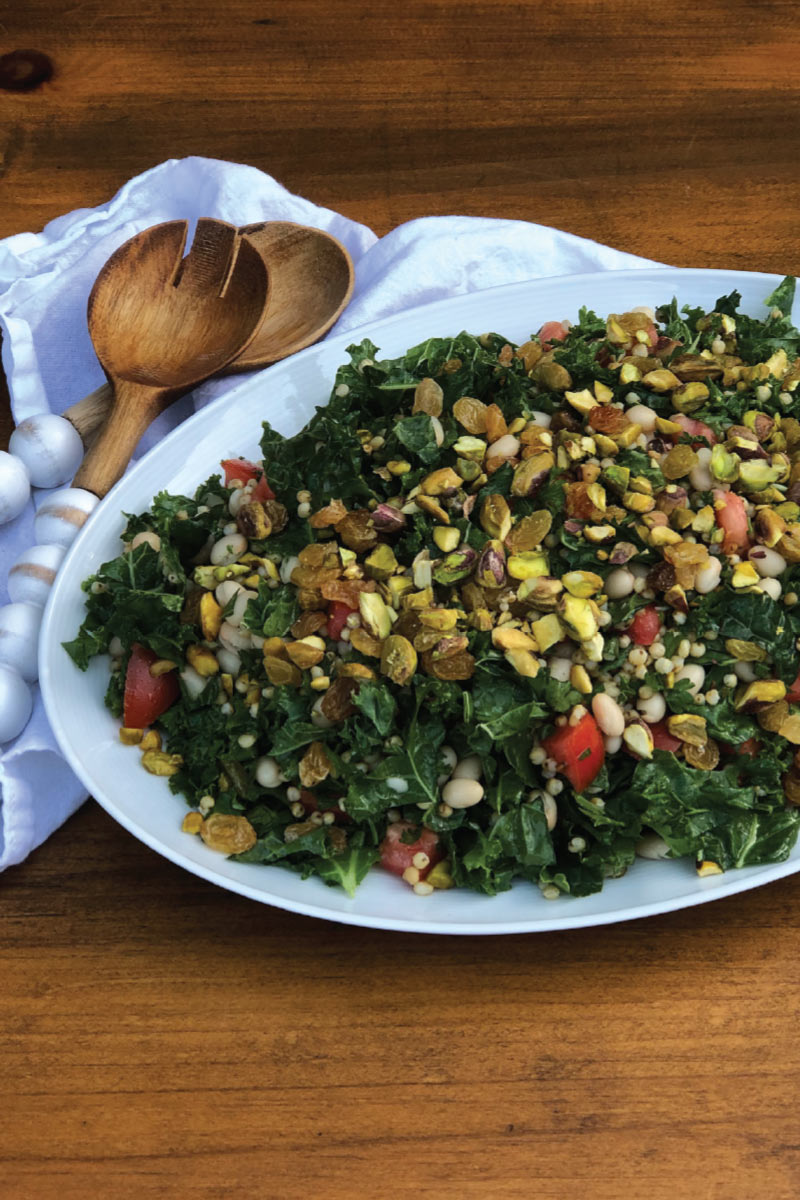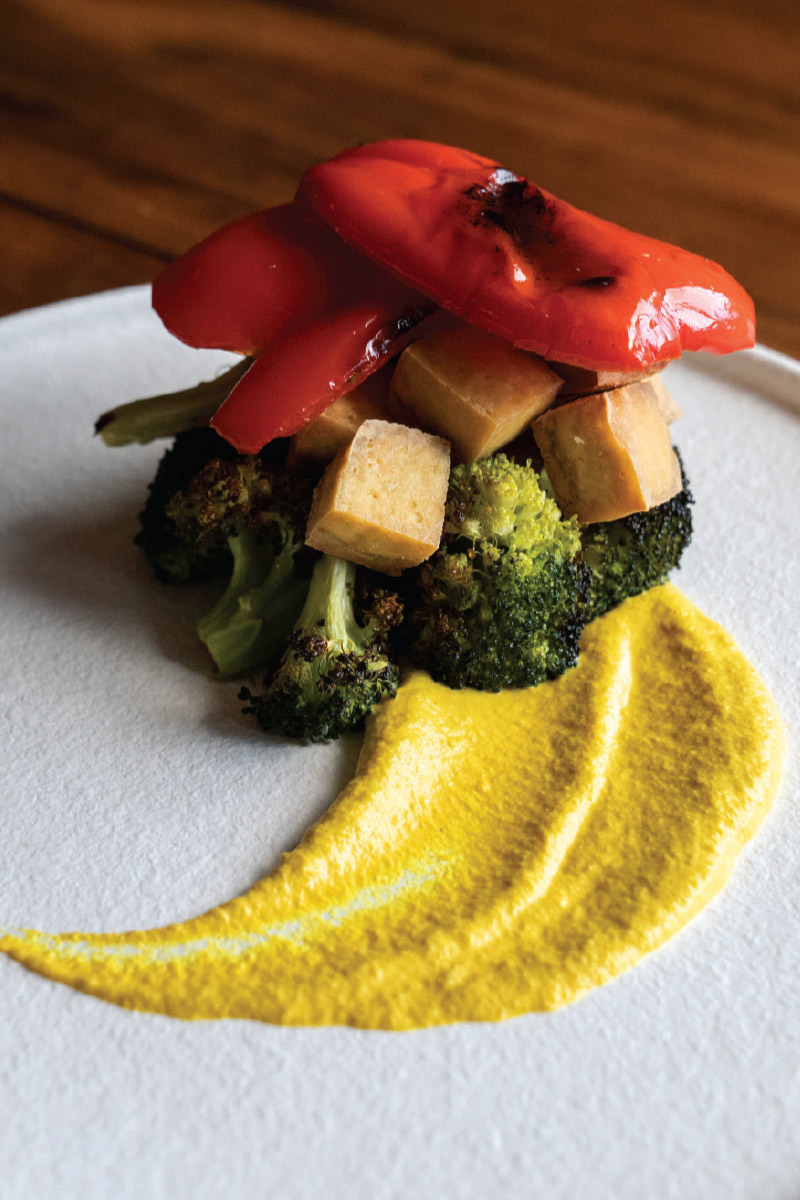Advertisement
Why Now is the Time to Eat More Plants!
You may have noticed that plants are having a moment. The rate of people identifying themselves as “plant-based” has been growing faster than zucchini in the summer sun. Even the latest iteration of Canada’s Food Guide suggests leaving more room on our plates for items from the plant kingdom, thereby removing some non-plant calories.
Research backs plant-based
The health benefits of plant-centred eating can’t be overstated, especially in a time of skyrocketing chronic diseases and obesity. We now have piles of research papers showing that a plant-based diet builds up a solid foundation for lasting health.
For instance, a study in the American Journal of Clinical Nutrition determined that a healthy plant-based diet not only generally lowers the risk for heart disease, but it can also help override some of the genetic susceptibility to this condition. (Research suggests eating too much meat, especially processed red meat, has the opposite effect on heart health.)
A separate investigation in JAMA Internal Medicine found replacing animal proteins, such as steak and chicken, with plant-based proteins may reduce the risk of premature death overall and death from cardiovascular disease.
Greater intakes of plant foods have also been linked to elevated levels of anti-inflammatory gut bacteria, improved body composition, lower blood pressure numbers, less cognitive decline with age, and a reduced risk for type 2 diabetes.
Plants are nutrient heavyweights
Plant-forward eating should trickle down to younger generations as well. Eating a plant-centred diet during young adulthood is associated with a lower risk of heart disease in middle age, according to an American Heart Association long-term study with 32 years of follow-up.
This all makes sense when you consider that comestibles of plant origin will have a cocktail of fibre, vitamins, minerals, and antioxidants that are present in much more limited quantities on a meat-heavy diet.
The bottom line is that if you’re looking to take your health and the well-being of your family to the next level this year, there are few better places to start than to wiggle more plant foods into your daily menu. Your health future will look brighter.
Plant one step at a time
Joining the plant-based camp need not be as daunting as you may think. Mainly because you don’t need to go full-blown plant-only to reap the rewards. Just wedging in a few more plants into your daily routine can bring dividends.
Each week, increase the number of meatless meals you already enjoy and try your favourite recipes without meat, using the appropriate substitutes. You may be surprised by how great a lentil Bolognese can be.
The many ways with plants
Choosing between the various guises of plant-forward diets is mostly a matter of deciding how far along the plant-only spectrum you want to go. A plant-centric diet can mean more than one thing. Here’s a breakdown of the most popular categories.
Plant-based
While plant-based eating does mean noshing on a lot more foods from the plant kingdom, it doesn’t necessarily entail being animal product-free, though it gravitates that way for more meals and snacks.
So it’s a dietary lifestyle that’s open to interpretation and flexibility, hence it’s other term, flexitarian diet. Some people use plant-based eating as a way to ease into a more restrictive type of plant-based diet, such as vegan or vegetarian.
But since it’s less restrictive than these diets, some will find this less rigid style of eating easier to stick to long-term. And because there can be an allowance for animal-based foods, it might be easier to obtain certain nutrients like vitamin B12 in your diet.
Vegan
A vegan diet excludes all animal-based foods. This includes obvious items like meat, eggs, and dairy in addition to any ingredients derived from animal sources, including honey, collagen, and gelatin. Any supplements also need to be derived only from plants.
Many vegans will also eliminate animal-based products beyond food—such as leather or fur goods. These days, many vegans are now calling themselves “plant-based.” Keep in mind that the more restrictive your diet is, the more challenging it can be to get all the nutrients you need. A vegan diet, for example, eliminates natural food sources of vitamin B12.
Vegetarian
A vegetarian diet is a popular form of plant-forward eating which is considerably less restrictive than a vegan diet. The vegetarian diet allows the same foods permitted on a vegan diet and excludes all types of meat, fish, and seafood. But it can allow other kinds of animal products such as dairy, eggs, and honey. A lacto-ovo vegetarian diet excludes meat, but still allows all types of dairy (lacto) products and eggs (ovo).
Pescatarian
As with other types of plant-forward diets, a pescatarian diet is still primarily based on plant-derived foods, but it includes fish, shellfish, and seafood. Other meats, including beef, pork, and poultry, are not consumed, which allows for more room for plant-based proteins on the plate.
Many people in this camp also eat dairy products and eggs, but some do not. The benefit here is that it can be easier to take in higher levels of high-quality protein and important marine-sourced omega-3 fatty acids.
Beat the bloat
When transitioning to a plant-heavy diet, there can be some digestive woes including bloating and gas. While these unfortunate byproducts generally subside with time, here are a few ways to accelerate their decline.
Epazote
Simmer dried beans and lentils with epazote, a dried herb native to Central America that can reduce the gas many people experience when eating legumes. Try adding 2 tsp (10 mL) to a large pot of beans.
Ginger
Sipping a steamy mug of ginger tea may work wonders when you’re feeling like the Michelin Man after a hearty plant-based meal. Compounds in ginger can stimulate the body’s gut juices that aid in digestion.
Mint
Feeling puffed-up? Try flavouring more of your meals with mint. Oils in peppermint, including menthol, can help relax your GI muscles to relieve spasms that cause discomfort and your stomach to bloat. Like ginger, sipping a mint tea post-meal can be a good idea.
Fennel
Crunch on a few fennel seeds; the Mediterranean import has a long tradition of being used to provide a degree of relief from digestive woes like bloating and cramping. This is why many Indian restaurants offer fennel seeds after your meal.
Supplement savvy
Appropriately planned and executed plant-based diets can be nutritionally adequate, but there are a handful of nutrients that may need a supplemental boost. Remember, the more variety you bring to your plant-forward diet, the more likely you’ll be to cover all or most of your nutritional needs.
Iron
Iron is a crucial component of red blood cells that help carry oxygen throughout the body. Plant foods like beans and lentils contain iron but in a form that is less available to the body than the form found in meats.
If a blood test reveals low stores of iron, then your physician will likely recommend supplementation. Research shows the rate of iron deficiency is increasing in the population, largely due to changes in farming practices and dietary habits.
Iodine
Iodine is a component in thyroid hormones, which help regulate metabolism, growth, and the functioning of key organs. Plant-only eaters may not get enough if not using iodized salt or consuming seaweed, which can be considered a good source of the nutrient.
Omega-3
Diets that do not include fish and free-range eggs are generally low in the most potent forms of long-chain omega-3 fatty acids, which are necessary for optimal heart health. Supplements sourced from algae can provide the same omega-3s found in fatty fish like salmon.
Vitamin B12
Vitamin B12 is necessary to produce red blood cells and prevent anemia. This vitamin is found almost exclusively in animal products, so it can be difficult to get enough on a plant-only diet or one that greatly limits animal-based foods.
Vitamin D
If you don’t eat enough fortified foods, such as certain plant-based milks, and have limited sun exposure, you likely need a vitamin D supplement (one derived from plants if vegan).
Speak with your natural health practitioner to make sure you’re covering your bases for other items including protein, zinc, and calcium that can be more challenging to get in sufficient amounts on a plant-centric diet, depending on how restrictive it is.
Go whole
Some plant-focused diets rely too heavily on ultra-processed foods, which can be high in calories, sugar, fat, and sodium. To gain the health benefits of this style of eating you need to focus on whole foods from the plant kingdom including whole grains, beans, lentils, vegetables, and whole fruits. Some “processed” foods like tofu, canned tomatoes, and frozen vegetables are perfectly acceptable.
Happy endings
A study in the Journal of Clinical Endocrinology & Metabolism found that eating a plant-based meal for dinner was associated with 10 percent lower odds of developing cardiovascular diseases. In contrast, individuals who consumed a lot of fatty meats and refined carbohydrates during dinner had greater odds of developing heart disease.
The rise of plants
According to a recent report released by the Plant Based Foods Association (yes, that is now a thing), total plant-based food sales including meatless burgers, pork-free sausages, and no-moo milk have risen by 31 percent, outpacing overall grocery sales. Even fast-food menus are becoming saturated with plant-based versions of burgers and chicken nuggets to keep up with demand.
This article was originally published in the January 2022 issue of alive with the title The Power of Plants







